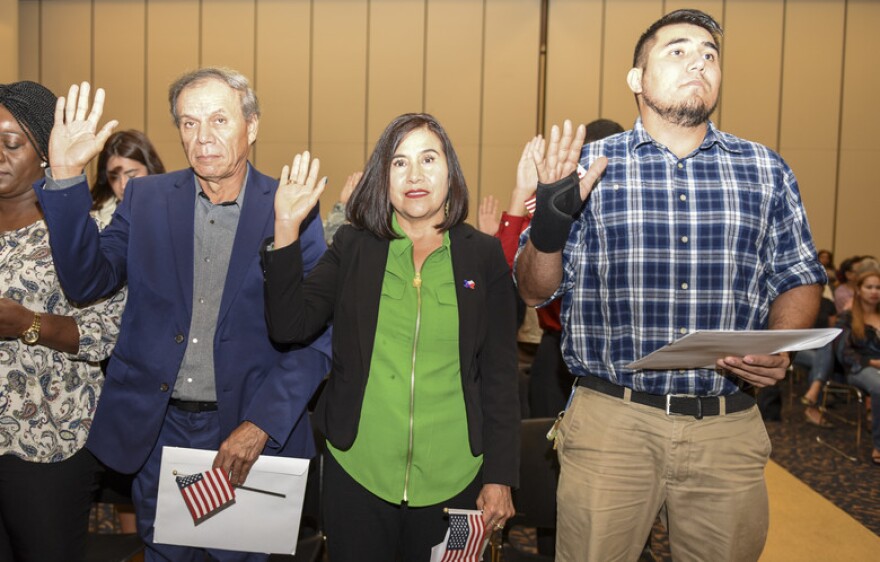The proposal would allow the government to deny green cards for certain categories of legal immigrants who would be considered a “public charge” or those who are receiving assistance for housing, food benefits and health care. Rima Merouh from the Arab Community Center for Economic and Social Services in Michigan saysthe alarm and confusion over who the law applies to has affected more people than the immigrants to which it actually applies.
“Public charge rule changes don’t actually impact very many people it’s the chilling effect that impacting people. It’s the fear that’s created around this that’s impacting people.”
But in order to receive these public benefits a person has to have had a green card for at least five years and Merouh says the overall public confusion is causing many immigrants to unenroll from benefits.
“You are going to have people using emergency Medicaid because they no longer have Medicaid which is much more expensive for the state. So, this is disastrous in so many ways for not only the communities but for the communities they live in as well.”
And according to Merouh, the effects are not just felt within immigrant communities, but also in rural communities across the state. Since the public charge law was proposed two years ago, fewer international students are choosing to come to Michigan to study medicine... many of whom are key in offering health services to rural communities in the state.
“And that the process that they go through, if they go to Medical school here, or even if they come to do residency here, they often take jobs in rural areas in order to be able to get a green card and that reduces the pool of people who will be doing that. Public charge reduces the pool of people who will be doing that.”
While this law is directly aimed at immigrants receiving public benefits, only 20% of immigrants are actually receiving these benefits according to the Department of Homeland Security’s analysis of the rule itself.
Michelle Jokisch Polo, WGVU News.

